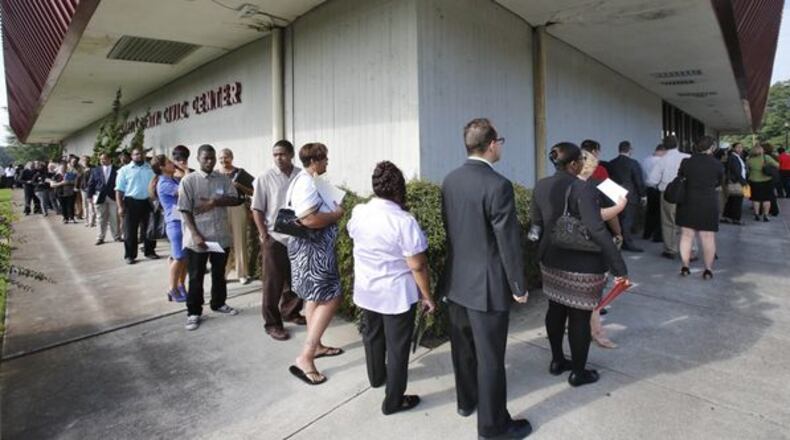Today's good news sounds very bad: 2.8 million Americans quit their jobs in September, according to newly released statistics -- "that's 300,000 more than in August and the highest number since April 2008," according to Vox. The recent high was in late 2006, before the Great Recession.
The reasons for this are diffuse -- economies are complex; the American one is vast; and 2.8 million people is a lot of people -- but psychology may play a role. As Vox's Danielle Kurtzleben notes, a higher "quits" rate assumes more workers think they can find better jobs; and the quits rate has been slower to recover than many other labor indicators, a reflection of workers' shaky confidence during a slower-than-normal recovery.
This could be a factor, according to Reuters, in the country's stagnating wages, even as unemployment falls: Employers are less likely to increase compensation if they aren't afraid of turnover.
"It's definitely good for wages," Joseph LaVorgna, chief U.S. economist at Deutsche Bank, told Reuters. "Also, the chair of the Federal Reserve is looking at it, and if she's looking at it, we have to as well."
But there is bad news as well: there are nearly two unemployed people per job opening, according to economist Justin Wolfers.
Georgia has had its own job woes, with an unemployment rate that surprisingly spiked in August to the nation's highest, at 8.1 percent, before dipping to 7.9 percent in September, which was ... still the worst in the nation. (State numbers for October will be released next week.)
Following the August numbers, Gov. Nathan Deal argued that politicking was behind the "historically faulty" data. He said there are more important factors to consider in the state's health.
"Unemployment rates are only good for political advertising as a general rule," Deal said then. "Economists don't pay any attention to them. Businesses don't pay attention to them."
Keep Reading
The Latest
Featured



